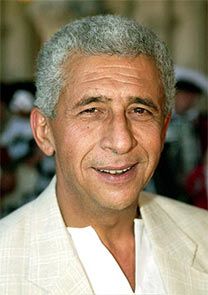 Naseeruddin Shah sets the gold standard as a master memoirist.
Naseeruddin Shah sets the gold standard as a master memoirist.
In the West, there is a long and rich tradition of actors and movie stars telling their stories, most captivatingly, in their own words.
This is as it should be: who but these great alchemists of the stage and screen can interpret the magical power of words in performance -- or carry us deep into the recesses of the human mind?
There are numerous instances of thespians becoming literary stars, giving their stellar careers a second wind, from the luminous perception of Alec Guinness' memoirs and diaries (Blessings in Disguise; My Name Escapes Me) to Rupert Everett's recent chart-busting "chronicles of celebrity hell" (Red Carpets and Other Banana Skins; Vanished Years).
When the Hollywood siren Lauren Bacall wrote her autobiography, she knowingly called it By Myself: whatever the world thought of her, she implied, this was what her world was really like.
It's an account so disarmingly candid that it needs no enabling ghost writer's crutch.
By comparison, Indian actors can't hack it.
Their collective writings should be labelled "Varnished Years": Dev Anand's autobiography, Romancing with Life, is as clunky as its title; Dilip Kumar's recent memoir comes sanitised with Flush Clean.
The late and great Zohra Segal, as you'd expect, was somewhere up to the mark in Stages. But now it's time to hit the "pause" button.
This week, Naseeruddin Shah sets the gold standard as a master memoirist. And Then One Day (Penguin; Rs 699) is a tour de force of storytelling as well being the unexpurgated account of a chronic dope head's life and brilliant career till the age of 32.
Or how the third son of a provincial civil servant in north India, "an unremarkable, unattractive, unintelligent, unfriendly type... [found] great solace in pretending to be other people."
Central to an actor's story is a conundrum: is his life really about the lives of others?
"I have been grappling for years with the question of whether experiencing difficulty in dealing with real life is what drives people to become actors," asks Shah.
He attacks the question with zest, wit and dollops of self-doubt; packing in acute observation, telling anecdote and portraiture in an enthralling narrative of exceptional writing. And his complex answer is this: there can be no serious examining of other lives without unrelenting self-scrutiny.
Theatre and film aficionados of the 1970s will find much entertainment and understanding here of the halcyon days of the National School of Drama under E Alkazi, the Film and Television Institute of India under Girish Karnad and the pioneering early films of Shyam Benegal; there is also a probationary account of his life as a self-deluding runaway from college to work as a starving extra in Bombay (now Mumbai)'s film trash.
What elevates Shah's voice from the herd are his opinions.
He is not so much opinion maker or opinionated as an audacious "opinionist".
Ever the misfit in mainstream cinema, he "found most of the acting in Indian movies so unbearably false". ("Even the ugly character has to be handsome ugly," pointed out Subhash Ghai.)
His adolescent public school adoration was for Geoffrey Kendal of Shakespeareana, and later for Laurence Olivier, Toshiro Mifune, Dustin Hoffman and Marlon Brando. He is as shrewdly assessing about his gurus and co-stars.
"Satyadev Dubey, like Alkazi, had an inbuilt shit-detector and no patience at all with 'fancy concepts like exploring'." His long-standing co-star, Shabana Azmi, is doused with praise before being judged for the "smug reverence she has for her own acting and her tendency to perform with background music playing in her head...".
Pran, the Hindi film villain, is described as "the world's best bad actor".
Till date, he has not seen one of his most popular movies, Shekhar Kapur's Masoom (1983), because of his pathological loathing of glutinous child stars: "They could give you diabetes."
He is unsparing about the most troubled passages of his personal life. His fraught relationship with his father remains unresolved till the sad end.
A close association with a fellow actor from their drug-fuelled drama-school days becomes damaging and violent. His abandoned daughter from his first teenage marriage comes to live with him after 14 years.
In the end, what does an actor's life add up to? "I am still often mistaken for Om Puri or Girish Karnad or Nana Patekar... who they get mistaken for, I don't know."
Quixotic, remorseless, powerful -- And Then One Day is a rare, unforgettable performance by Naseeruddin Shah.
Photograph: Ethan Miller/ Reuters










